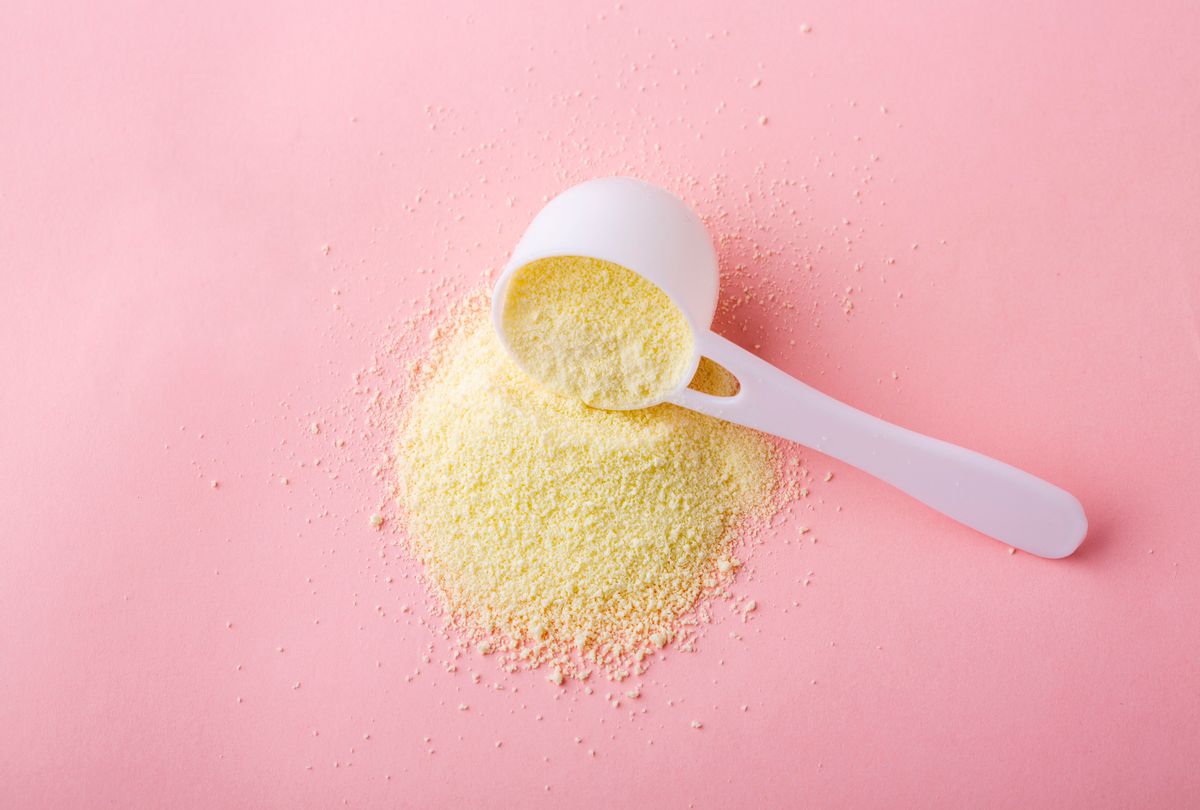In February 2022, infant formula maker Abbott Laboratories issued a huge recall of its baby formula due to bacterial contamination. The recall, which happened at a time when supply chains were still feeling the strain of the pandemic, included several lots of Abbott's Similac, Alimentum and EleCare formulas. As the largest formula maker, Abbott provides over 40 percent of the country's infant formula. Grocery store shelves across the country were empty for months, leaving parents to scramble to find ways to feed their infants.
As Salon previously reported, some parents desperately scoured Facebook groups for formula dealers, or in some cases, bought breast milk on online platforms. Scammers and price gougers wasted no time exploiting this crisis.
Now, a new study aims to quantify how parents were left to cope during the crisis. Published in the journal BMJ Pediatrics, researchers at the University of California, David found that nearly half of parents who relied on formula to feed their babies during the shortage resorted to unsafe feeding methods.
"I think what's exciting about this publication is that it reports, for the first time, how parents with infants who relied on infant formula responded to the infant formula shortage last year in the middle of the crisis," lead author Jennifer Smilowitz, a faculty affiliate with the UC Davis Department of Food Science and Technology, told Salon. "That's unique because we're not asking people to recall what they did six months ago, or a year ago, but it's what you are doing right this moment."
"These practices may seem harmless when we think of an adult diet but we need to remember that infants require a very specific balance of nutrients to grow and develop."
Indeed, the survey took place in May 2022 when some states had an out-of-stock rate as high as 90 percent. Specifically, Smilowitz and her colleagues found that the number of people that used at least one unsafe feeding practice increased from 8 percent before the formula shortage to nearly 50 percent during the peak of the shortage. The unsafe practices included watering down formula, using expired formula, using homemade formula or using human milk from informal sharing resources.
"These practices may seem harmless when we think of an adult diet. Like you water down chicken soup, but what we need to remember is that infants require a very specific balance of nutrients to grow and develop," Smilowitz said. "So too much or too little of anything could actually be dangerous to their developing systems. For example, watering down infant formula is unsafe because it can result in electrolyte and mineral disturbances, making homemade infant formula may seem safe. But it's actually unsafe, because it can introduce nutrient deficiencies if it's not prepared by a credentialed nutritionist."
It can also introduce contaminants during the preparation process. As Salon previously reported, recipes for homemade formulas circulated online during the shortage.
"Using expired formula is unsafe because the nutrients in the formula can degrade over time, and so that in itself can interfere with infant growth and development," Smilowitz said. "And then finally, acquiring human milk informally — so this is milk sharing whether online or with friends and family, versus acquiring pasteurized donor milk — is unsafe because it can introduce health and safety risks."
"Another crisis is imminent if regulatory, healthcare and workplace policies in the US don't systemically change."
According to the survey, these risks jumped during the shortage. The percentage of parents who shared human milk increased from 5 percent to 26 percent while the percentage of using watered-down formula increased from 2 percent to 29 percent. Parents who turned to milk banks, which is considered safe practice, increased from 2 percent to 26 percent. However, donor milk from milk banks can be costly — between $3 to $5 per ounce.
The study highlighted how lower-income families were hit the hardest, as 75 percent of the study's participants were either part of The Special Supplemental Nutrition Program for Women, Infants and Children (WIC), or had been part of the program in the last 12 months. Smilowitz said she hopes this is a wake-up call for policymakers to change the monopoly on the U.S. infant formula market. In the U.S., formula supply is controlled by U.S. trade regulation and tariff policies.
Want more health and science stories in your inbox? Subscribe to Salon's weekly newsletter The Vulgar Scientist.
"This results in a concentrated U.S. infant formula market," Smilowitz said. "So there are really high tariffs, as high as 25 percent, and this has been preventing the import of infant formula to the U.S. from manufacturers from other countries, including Canada."
Smilowitz added that there are strict labeling requirements that prohibit the diversification of the infant formula market, too.
"These geopolitics reduce the diversity of infant formula options in the U.S. market," Smilowitz said. "While this study reflects a catastrophic event that occurred 13 months ago, we should not forget what happened because another crisis is imminent if regulatory, healthcare and workplace policies in the US don't systemically change."



Shares